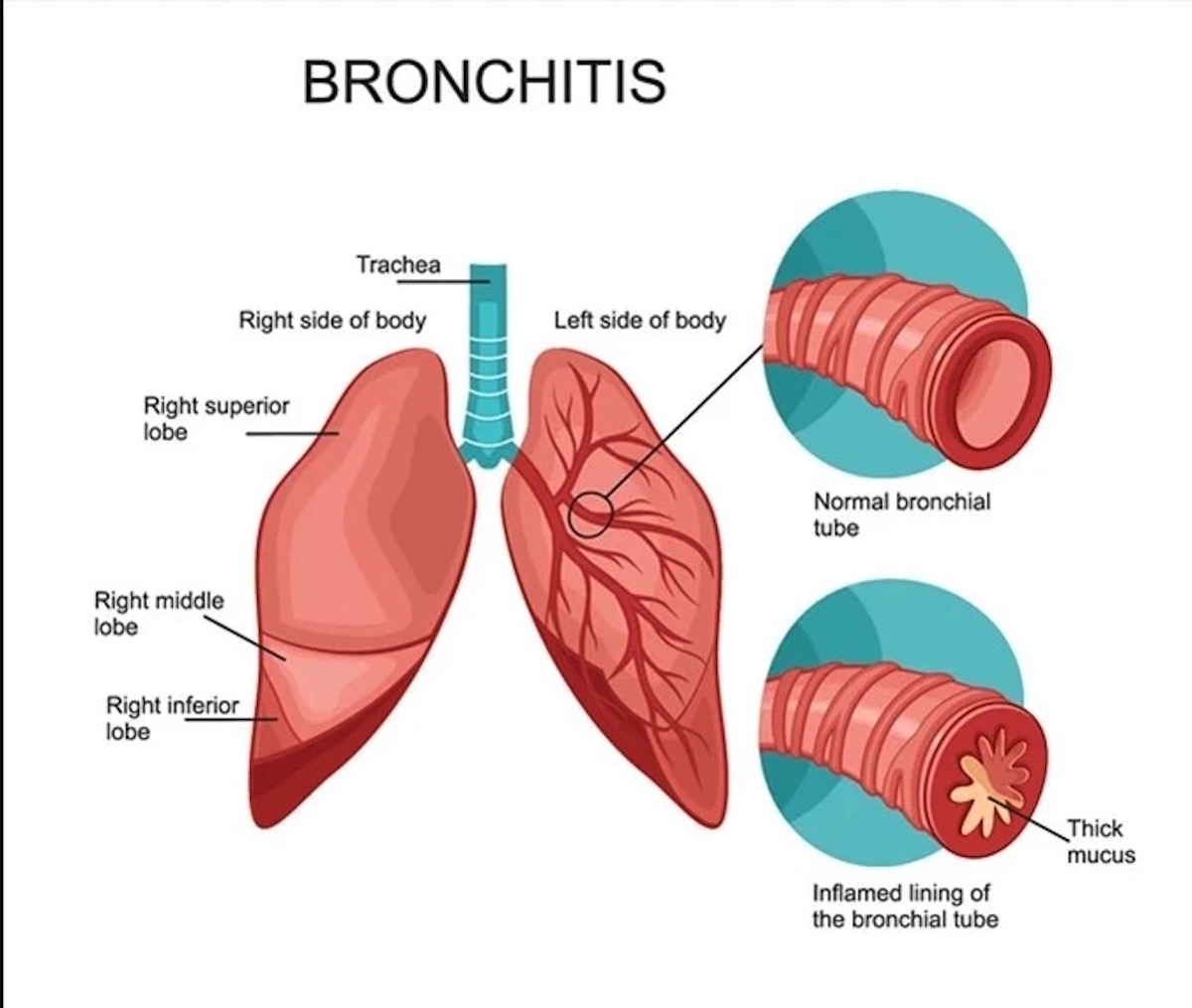The inflammation of the bronchial tubes characterizes bronchitis, which carries air to and from the lungs. It can be chronic or acute. Around 10 million Americans suffer from a chronic form of the disease, and an additional 17 million have COPD. More than 3 million Americans are diagnosed with this respiratory condition annually, making it crucial to recognize the condition and know what to do next.

What Is Bronchitis?
Bronchitis is a respiratory condition in which the bronchial tubes, which carry air to and from the lungs, become inflamed. This can lead to swelling of the airways and an accumulation of mucus, which can cause coughing.
The immune system may respond to the irritation by triggering inflammation and mucus production in the airways, leading to persistent coughing until the inflammation and mucus are resolved. The acute type sometimes referred to as a “chest cold,” is a short-term illness that usually resolves within a week to 10 days. While the symptoms may disappear, the cough may persist for several weeks. If an individual experiences frequent episodes of acute bronchitis, they may be diagnosed with the chronic type. Which is a type of chronic obstructive pulmonary disease (COPD).
Causes of Bronchitis
It is typically caused by a viral infection. However, other factors, such as irritants, can also cause the condition. Infectious and noninfectious causes may include:
- Viruses, like influenza, respiratory syncytial virus, and the coronavirus
- Bacteria, like Bordetella pertussis
- Air pollution and/or dust
- Smoking cigarettes or cannabis
- Toxic gases
It can affect anyone, but certain individuals may be at higher risk of developing the condition. These include:
- Smokers and individuals exposed to secondhand smoke
- Individuals with asthma, COPD, or other respiratory conditions
- Those with GERD (gastroesophageal reflux disease)
- Individuals with autoimmune disorders or other conditions that cause inflammation
- Those exposed to air pollutants such as smoke or chemicals
Continue reading on the next page and learn, among others, how you can recognize bronchitis.

